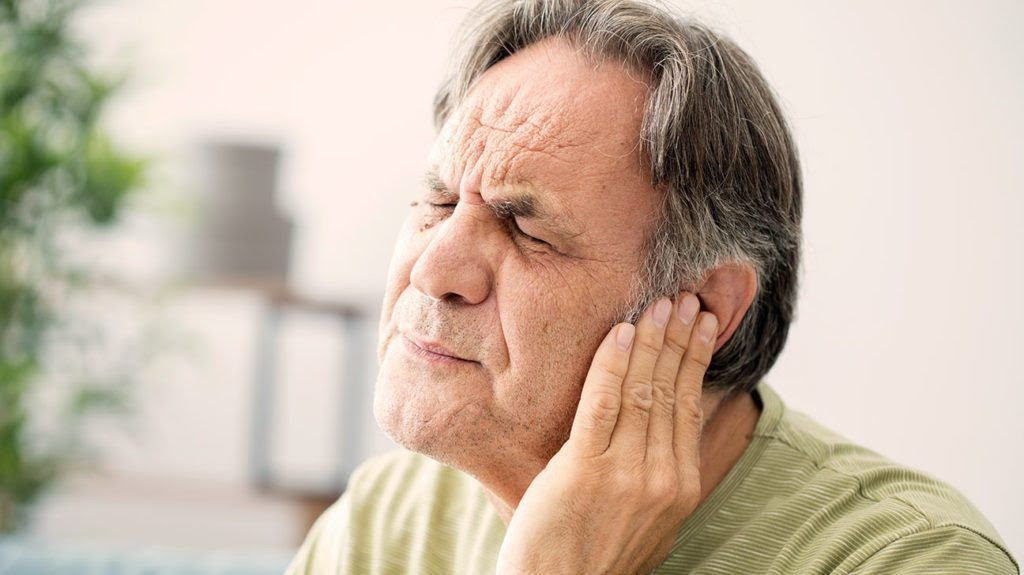It is not uncommon to occasionally hear a strange sound in the ears, such as a popping, ringing, or crackling.
Usually, crackling in the ears is not harmful. If it occurs frequently, however, it can affect a person’s quality of life and may indicate an underlying issue.
Continue reading to learn more about the causes and treatments for crackling in the ears.
Causes and symptoms

Eustachian tube dysfunction is a possible cause of crackling sounds in the ears.
Many people experience crackling in their ears from time to time. For example, pressure in the ears from altitude changes can lead to crackling or other uncomfortable effects.
Some other causes of crackling in the ears include:
Eustachian tube dysfunction
The eustachian tube is a narrow passageway that connects the middle ear to the throat. There is one tube in each ear.
These tubes prevent air pressure and fluid from building up in the ear. Maintaining correct ear pressure prevents the eardrum from bulging in or out incorrectly.
Normally, the eustachian tubes remain closed and only open up when a person swallows or yawns. Blocked tubes and those that do not open or close correctly can lead to eustachian tube dysfunction.
Eustachian tube dysfunction is fairly common. It occurs in about 4% of adults worldwide.
In addition to crackling in the ears, some other symptoms may include:
- itchiness or tickling inside the ear
- pain in and around the ear
- a feeling of fullness in the ear
- muffled hearing
- These tubes may become blocked due to:
- seasonal allergies
- sinus infections
- common cold infections
- Impacted earwax
- The ear canal secretes wax to protect the structures of the inner ear from germs and other foreign particles. Typically, earwax moves out of the ear on its own.
According to the Hearing Loss Association, items placed in the ears — such as earplugs, cotton swabs, and music earbuds — may increase the buildup of earwax and prevent the natural flow of wax out of the ear canal.
When earwax accumulates, it may cover the eardrum and lead to a crackling sound.
Some additional symptoms of impacted earwax include:
- ear pain
- itching inside the ear
- coughing
- a feeling of fullness in the ear
- Ménière’s disease
- Ménière’s disease affects the inner ear and leads to dizziness. The condition can affect anyone, but it more commonly affects people aged 20–50.
Symptoms of Ménière’s disease may include:
- dizziness
- hearing loss
- a feeling of fullness in the ear
- Temporomandibular joint and muscle disorders
- Temporomandibular joint and muscle (TMJ) disorders involve pain and dysfunction of the jaw joint.
TMJ disorders affect more than 10 million people in the United States. Symptoms of TMJ disorders can include a crackling sound in ears, along with:
- headaches
- jaw pain
- stiffness in the jaw
- limited movement of the jaw
- Diagnosis
- To diagnose the cause of crackling in the ears, a doctor will start by conducting a physical exam and taking a medical history.
During the exam, the doctor will look inside the ears using an otoscope. In some cases, they can make a diagnosis based on a person’s medical history and this exam alone.
In other instances, specialized tests — such as hearing tests — can help determine a diagnosis.
Treatment
Treatment is not always necessary for crackling in the ears, especially if this symptom only occurs occasionally.
Treatment options depend on the underlying cause and may include:
- Ear drops: Ear drops may help soften the wax inside the ear for easy removal.
- Manual removal of earwax: A doctor may use different methods to remove earwax.
- Placement of ear tubes: A doctor can place tubes in the eardrums to equalize pressure in the ear and drain fluid. In some instances, the insertion of a small balloon catheter opens up the eustachian tubes, treating dysfunction.
- A bite guard: Bite guards sometimes provide relief for people with TMJ disorders. Surgery for TMJ disorders is a last resort, and it is not always successful.
- Home remedies
- Home remedies for crackling in the ears include:
- Using a nasal flush: Using a saltwater flush in the nose can remove excess mucus from the sinuses.
- Trying over-the-counter (OTC) decongestants: OTC decongestants may help reduce mucus and fluid contributing to problems with the eustachian tubes.
- Removing earwax: Most earwax blockages are treatable with home remedies that soften the wax. For example, placing a couple of drops of baby oil or mineral oil into the ears can soften hard wax and allow it to flow naturally out of the ear.
- Treating allergies: Allergies can sometimes lead to problems with the ears and eustachian tubes. Treating these can help.
- Not using cotton swabs: Pushing a cotton swab too far into the ear can lead to impacted earwax.
- When to see a doctor
- Crackling in the ears does not always require treatment. In many cases, these sounds will go away on their own or with certain home remedies.
However, people with the following symptoms should speak to a doctor for a full diagnosis and treatment recommendations:
- crackling sounds that are severe or occur daily
- signs of an ear infection, such as a fever or pain
- symptoms that keep coming back
- fluid draining from the ear
- hearing loss
- Summary
- Crackling in the ears is not usually harmful if it only occurs once in a while. However, people with frequent or severe symptoms should speak to a doctor for diagnosis.
Some possible underlying causes include impacted earwax, eustachian tube dysfunction, and TMJ disorders.
Certain home remedies may reduce mild symptoms. When these do not help and the crackling persists, medical treatment can help.

Leave a Reply